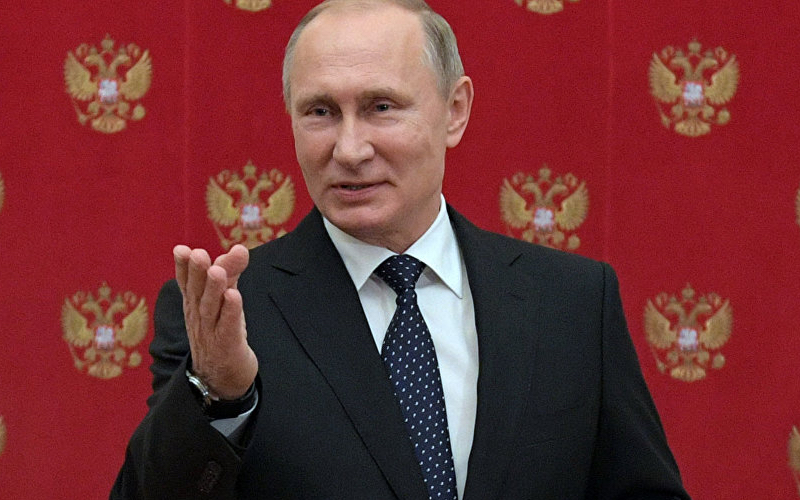
The Pending U.S.-Russia Reset: Birth of a New Business Model?
Certain guiding principles have proven instrumental in shaping our views of the world. Among them, for many Americans and Russians, is the belief that Russia and the U.S. are natural enemies, and will remain so. For many, that perspective did not change following the breakup of the Soviet Union, with most Americans viewing the Russians as vanquished villains, and with many Russians continuing to view the U.S. — and the West more generally — with great contempt and suspicion.
Unbeknownst to many in the West, a large percentage of Russians were curious about and eager for a friendship with America during Perestroika in the 1980s, and after the dissolution of the Soviet Union. Perhaps fewer Americans had an open mind at the time about the prospect for a warmer relationship with Russia. Since then, numerous attempts have been made to reset bilateral relations in a meaningful way. As Messrs. Putin and Trump contemplate doing just that, much skepticism will remain on both sides of the Atlantic, and rightfully so, based on history. But lately, history has not proven to be a particularly good guide for current events, or a reliable path into the future.
A lot of people in the U.S. and Russia will be upset by this proposed radical upending of the proverbial apple cart, and the manner in which it will apparently be done – a combination of strong man bravado and the demolition of conventional wisdom. Many will be asking whether the objective of what Putin and Trump are trying to achieve is similar to what previous U.S. presidents have attempted with Putin over the past 15 years. That, of course, remains to be seen, but it is clear that some businesses and political camps will benefit from a reset, while others will not.
Much as was the case when the Soviet Union fell apart, the West got used to the idea of doing business with Eastern European and Central Asian countries (and vice versa), and it wasn’t long before doing so became the new normal. The same may now prove to be true in this case.
The notion of national leaders strong arming companies is nothing new. American history is rife with examples, such as presidents Hoover and Roosevelt encouraging companies to act in the national interest during the Great Depression, president Kennedy publicly shaming steel companies into doing the right thing, and president Obama shaking up the banking regulations during the Great Recession. The same is very much true elsewhere in the world. The French government is no stranger to strongly incentivizing firms to remain in France, and the British government recently made promises to entice a Japanese carmaker to stay in the UK. The difference in the American case today is that the U.S. is neither at war nor in economic distress.
The American version of capitalism has flourished for many decades because of a combination of entrepreneurialism, free markets, and the enforcement of reliable laws and regulations. That won’t change, but what has already changed is a willingness on Trump’s part to stretch the boundaries of acceptability – in a variety of contexts – to the limit. As the Disrupter-in-Chief, that must, at least in his own mind, be what he was sent to the White House to do.
If joining arms with Moscow will result in an enhanced ability to tackle some of the world’s most intractable problems, and opens the door to those American and other Western businesses willing to assume the risks associated with doing business in Russia, such a rebalancing could prove to be a net gain for all concerned. Where there is risk there is also reward, and those companies bold enough to assume such risks – on both sides of the Atlantic – deserve to be rewarded, or to pay the price for having done so.
In the months following Trump’s election, the Russian ruble and stock markets have experienced significant rallies, largely in anticipation of a thaw in bilateral relations. Many Russians are indifferent to the personality of the new President, but are looking forward to a more constructive relationship with the U.S., and the West more generally. If Trump is successful in removing Russian sanctions, Moscow is sure to reciprocate by halting its counter-sanctions, and the stage will be set for enhanced political, economic, and collaborative military relations.
The hope is that a collaboration between the U.S. and Russia can bring stronger focus toward combatting common causes and shifting energy and resources towards more beneficial objectives. Putin and Trump have the potential to channel such a partnership into a more unified front against global terrorist movements. A partnership will also undoubtedly go some way toward a mutual desire to reduce their respective cross-border cyber-hacking of each other.
All this points to the potential for a new business model in which long-held suspicions are cast aside in pursuit of common mutual business interests and longer-term objectives. Maintaining an anti-Russian and anti-U.S. stance is good for the countries’ respective militaries, and not having to be bothered by the need to modify historical textbooks, but business suffers in the process, and individuals often end up paying the price. Putin and Trump appear to be saying, let’s do business together and make that the driving force of our bilateral relationship. We see little reason why this approach should not be given a chance to succeed. 70+ years of being bitter enemies has failed to serve the people or businesses of either country well.
A de-escalation of cold war rhetoric and belligerent actions between the U.S. and Russia should lead to a more productive distribution of resources, enhanced trade, and a business-driven relationship between the two countries that could become one of the great surprise successes of 2017. In the process, the traditional cold war ‘China and Russia against the U.S.’ triangle could be turned on its head, particularly given that Europe was already contemplating removing its sanctions against Russia this year, and that Turkish/Russian relations have warmed significantly in recent months.
What seems clear is that there is much more to be gained than lost as a result of the prospect of a meaningful, significant, and long-term reset of relations between Moscow and Washington. The world we are living in is much more conducive to creative thinking and tearing down barriers than it is to succumbing to ‘conventional’ wisdom, simply because that is the way it has always been done. The challenge for both Russia and the U.S. is to proceed with the right mix of caution and enthusiasm. Putin and Trump should be given credit for being willing to try to get this right, and should also be given an opportunity to prove that it can in fact be done.


